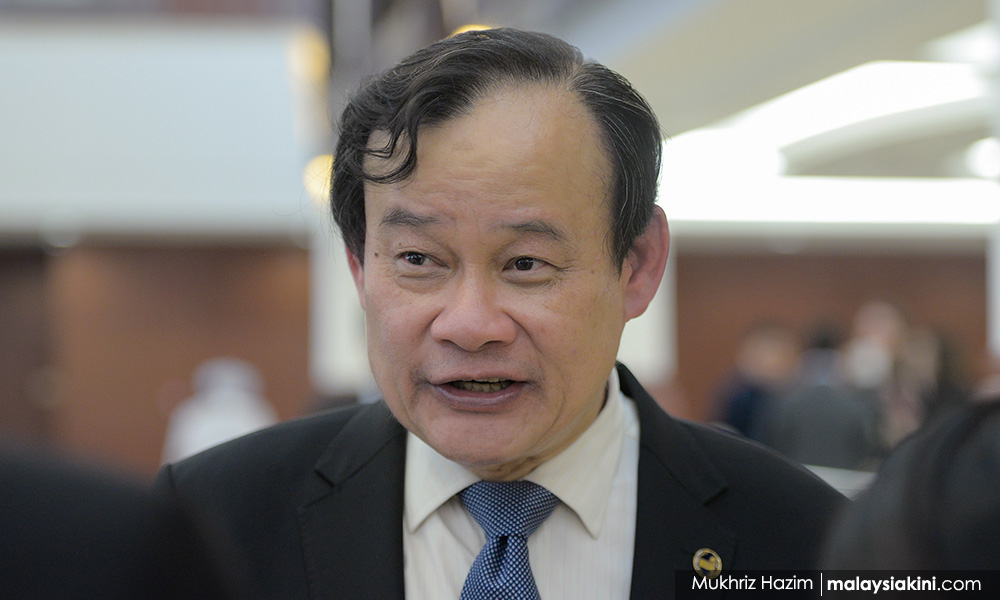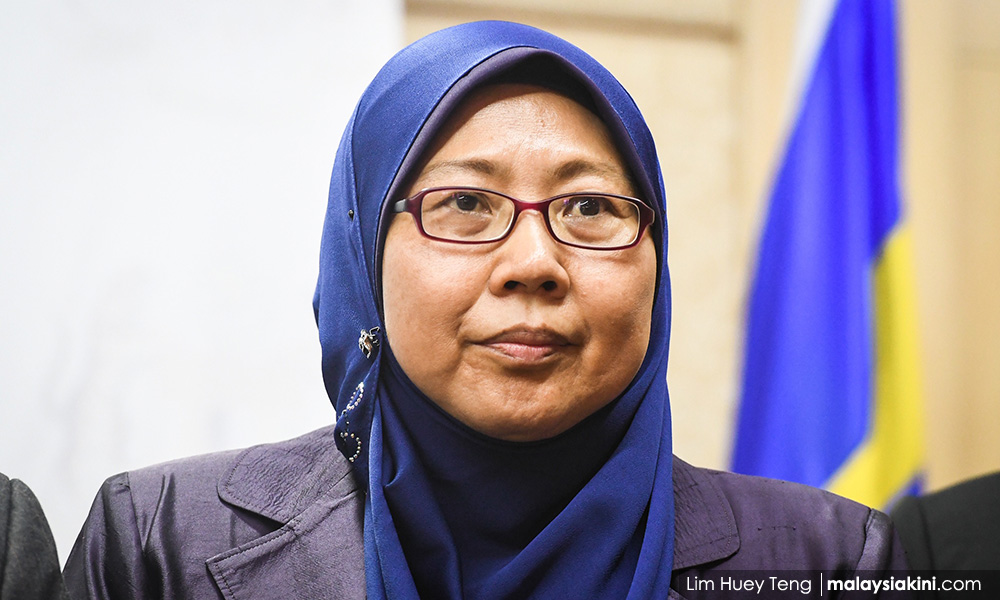
An outspoken Penang lawyer has expressed his "amazement" at a DAP leader coming to the defence of PKR Kuantan MP Fuziah Salleh for "spreading fake news" on her Facebook account.
Lawyer Shamsher Singh Thind (above) said posting fake news without verification is an "irresponsible" act for an MP.
"Laws should be tightened for those who are irresponsible at spreading fake news and creating public panic or chaos," Shamser told Malaysiakini.
"As an MP, Fuziah should do the necessary verification before posting (such news) on her Facebook," he added.
"If an MP is lazy to check, what hope do we have for common people? As an MP, Fuziah is supposed to lead and not follow the herd mentality," he stressed.
"Saying sorry is pointless when the damage has been done".
Shamsher was responding to a statement by Beruas MP Ngeh Koo Ham that Perikatan Nasional should not abuse its powers against Fuziah as no offences have been committed.
"Errors should be pointed out and corrections made," said Ngeh in defence of his Pakatan Harapan ally.
Ngeh (below), who is also Perak DAP leader, said Fuziah and the media have a duty to keep citizens informed of the latest events.

He added, the law protects them from any criminal prosecution should there be an error due to a mistake of facts.
"Under our criminal law, mens rea (intention to commit a crime) is essential before any act can be said to be criminal.
"A mistake of facts is a complete defence under common law and under our Penal Code (Sections 76 and 79)," Ngeh had remarked.
Police had begun a probe on Fuziah after a video clip was uploaded on her Facebook on Thursday night allegedly depicting the Sultan Iskandar Building (CIQ Complex) in Johor Bahru turning chaotic after large crowds of Malaysians returned home from Singapore.
The Facebook page later carried a note where the page's "administrator" apologised for posting an old video clip.
She has since deleted the post.
But retractions and apologies won't deter authorities from going after those who have posted "fake news" on social media, said Defence Minister Ismail Sabri Yaakob.
Shamsher is puzzled over why Ngeh feels the law should now forgive those who spread fake news when Harapan was also against fake news.
Shamsher said Section 76 of the Penal Code is a defence of "superior order".
He cited examples where it was not a mistake when:
- Someone was legally bound to do so (for example, an army member was ordered to shoot at enemies during the war); or
- He would, in spite of the fact, believe that he was legally bound to do so (for example, a police officer was ordered to arrest A but he arrested B, a twin of A, after assuming B was A).
"Since no one ordered Fuziah to make the post, this section does not apply," Shamsher said.
He pointed out Section 79 provides that it shall not be a criminal offence for any person when:
- His actions are justified by law; or
- The act was not justified by law but he in good faith, despite the fact, believed his actions were justified by law. (For example, A saw B flee after beating C. A, as a responsible citizen, arrested B and handed him over to the police. A did nothing wrong. Even if C is actually trying to rob B and B is only exercising his right to escape, A is innocent even if A is mistaken in fact, as long as A acts in good faith).
"It is true that Fuziah's post is incorrect (factual error). But I want to ask, did Fuziah (below) act in good faith?" Shamsher said.

"According to Section 52 of the Penal Code, 'nothing is said to be done or believed in good faith which is done or believed without due care and attention.'
"That is, if we do something recklessly without proper attention, then we cannot say we are acting in good faith.
"If there is no purity, then the defence of Section 79 does not apply. Do you understand, Ngeh?" Shamsher asked.
Meanwhile, Section 105 of the Evidence Act 1950 clearly states that "when a person is charged with any offence, the burden of proving the existence of the circumstances which render the case included in any of the general exceptions of the Penal Code lies with it, and the court should regard such circumstances as non-existent."
The defence of Section 79 is one of the general exceptions.
"In other words, Fuziah must prove her defence under Section 79, and the prosecution (as well as the police) should consider that the defence does not exist as long as Fuziah does not (prove it)," Shamsher argued. - Mkini


No comments:
Post a Comment
Note: Only a member of this blog may post a comment.